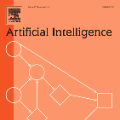Artificial intelligence (AI) has the potential to greatly improve society, but as with any powerful technology, it comes with heightened risks and responsibilities. Current AI research lacks a systematic discussion of how to manage long-tail risks from AI systems, including speculative long-term risks. Keeping in mind that AI may be integral to improving humanity's long-term potential, there is some concern that building ever more intelligent and powerful AI systems could eventually result in systems that are more powerful than us; some say this is like playing with fire and speculate that this could create existential risks (x-risks). To add precision and ground these discussions, we review a collection of time-tested concepts from hazard analysis and systems safety, which have been designed to steer large processes in safer directions. We then discuss how AI researchers can realistically have long-term impacts on the safety of AI systems. Finally, we discuss how to robustly shape the processes that will affect the balance between safety and general capabilities.
翻译:人工智能(AI)具有大大改善社会的潜力,但与任何强大的技术一样,它带来更大的风险和责任。目前人工智能研究缺乏关于如何管理人工智能系统的长期风险(包括投机性的长期风险)的系统化讨论。铭记人工智能可能是提高人类长期潜力的有机组成部分,有人担心建立比我们更聪明、更强大的人工智能系统最终会导致产生比我们更强大的系统;有人说这就像玩火,猜测这可能造成生存风险(x-风险)一样。为了增加精确度和基础性讨论,我们审查了从危险分析和系统安全角度收集的经过时间测试的概念,这些概念旨在引导大型进程走向更安全的方向。然后我们讨论了人工智能研究人员如何现实地对人工智能系统的安全产生长期影响。最后,我们讨论如何强有力地构建将影响安全和一般能力之间的平衡的进程。




